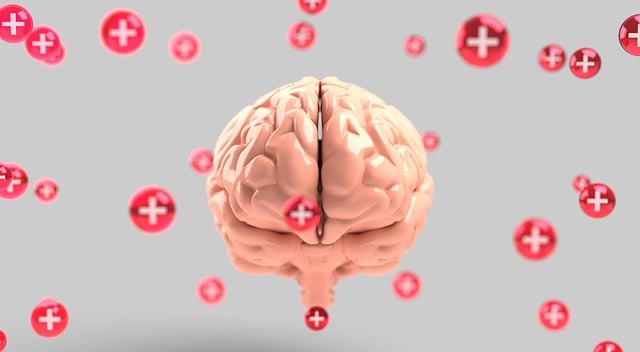Mental wellness journaling is a powerful tool for self-reflection and personal growth, offering a safe space to record thoughts and experiences. Regular journaling helps individuals manage mood, reduce stress, set goals, and reflect on achievements, empowering them to take control of their emotional health. Combined with Littleton Adjustment Disorder Therapy, it aids in understanding emotions, identifying triggers, and developing healthier coping mechanisms. This practice promotes self-awareness, resilience, and overall well-being, making it a key component of therapy programs and podcasts. A step-by-step guide provides strategies for creating an effective therapy space through writing, including selecting the right journal, setting clear intentions, incorporating therapeutic techniques, and tracking progress. For those with Littleton Adjustment Disorder, social skills training can enhance interpersonal understanding and support networks.
“Unleash your inner wisdom with Mental Wellness Journaling—a powerful tool for self-discovery and healing. This practice, proven effective in Littleton Adjustment Disorder Therapy, encourages individuals to navigate their emotions and experiences through reflective writing.
In this guide, we explore the transformative benefits of journaling for managing anxiety and adjustment disorders. We provide a comprehensive step-by-step approach to establishing a personalized journaling routine, offering practical strategies for those seeking to enhance their mental wellness.”
- Understanding Mental Wellness Journaling: Unlocking Self-Reflection and Growth
- The Benefits of Journaling for Anxiety and Adjustment Disorders
- Creating Your Journaling Practice: A Step-by-Step Guide to Effective Therapy
Understanding Mental Wellness Journaling: Unlocking Self-Reflection and Growth

Mental wellness journaling is a powerful tool for self-reflection and personal growth. By dedicating time to record thoughts, feelings, and experiences, individuals can gain profound insights into their mental state and unlock hidden aspects of their psyche. This practice allows one to explore their emotions, track progress, and identify patterns that may contribute to challenges like Littleton Adjustment Disorder. Through consistent journaling, people can develop a deeper understanding of themselves, fostering better mood management and stress reduction methods.
The act of putting pen to paper (or fingers to keyboard) offers a safe space for expression, helping individuals process complex emotions and work towards emotional well-being promotion techniques. It encourages introspection, enabling people to set personal goals, reflect on achievements, and strategize for overcoming obstacles. Whether dealing with stress, anxiety, or adjusting to life changes, regular mental wellness journaling can be a transformative practice that empowers individuals to take charge of their emotional health.
The Benefits of Journaling for Anxiety and Adjustment Disorders

Journaling has emerged as a powerful tool for managing anxiety and adjusting to life’s challenges, especially when coupled with Littleton Adjustment Disorder Therapy. By putting thoughts and feelings into words, individuals can gain valuable insights into their emotions and thought patterns, helping them identify triggers and develop healthier coping mechanisms. This introspective practice allows for better understanding of oneself, fostering resilience in the face of stress and anxiety.
In the context of mental wellness coaching programs development and cultural sensitivity in mental healthcare practice, journaling offers a safe space to explore complex feelings. It encourages self-reflection and promotes personal growth, making it an integral part of many mental wellness podcast series production. Regularly documenting experiences can help individuals track their progress, celebrate achievements, and learn from setbacks, ultimately contributing to improved mental health and overall well-being.
Creating Your Journaling Practice: A Step-by-Step Guide to Effective Therapy

Starting a journaling practice can be a transformative way to support your mental wellness, especially if you’re navigating challenges like Littleton Adjustment Disorder. Here’s a step-by-step guide to help you create an effective therapy space through writing:
1. Choose Your Journal and Setting: Select a journal that feels right for you—it could be a physical notebook or a digital one on your preferred device. Find a quiet, comfortable place where you won’t be disturbed, ensuring it’s a dedicated space for your journaling practice. This consistent environment will signal to your mind that it’s time to focus and reflect.
2. Set Clear Intentions: Before you begin, set an intention for each journaling session. For instance, you might aim to process emotions, track progress, or explore coping strategies. Writing down your intentions beforehand helps to centre yourself and provides a framework for the exercise.
3. Write Freely: Allow your thoughts to flow without judgement. Start with simple prompts like “How am I feeling today?” or describe events that occurred during the day. You can also use specific techniques such as gratitude journaling, where you list things you’re thankful for, which can help improve outlook and stress management.
4. Incorporate Therapeutic Techniques: Integrate practices known to enhance mental wellness. For example, mindfulness exercises where you observe your thoughts without attachment or exploring cognitive reframing by challenging negative thought patterns. If you have a Littleton Adjustment Disorder, social skills training techniques could be beneficial, encouraging self-reflection and understanding of interpersonal dynamics.
5. Track Progress: Regularly review your entries to identify patterns, triggers, and improvements. This process allows for better awareness and can guide future therapy sessions, especially when implementing a community outreach program focused on improving social connections and support networks.
Mental wellness journaling is a powerful tool for self-improvement, offering a safe space for reflection and growth. By integrating this practice into your routine, you can gain valuable insights into your thoughts and emotions, especially when dealing with anxiety or adjustment disorders, as supported by Littleton Adjustment Disorder Therapy. The step-by-step guide provided offers a clear path to creating an effective journaling practice, empowering individuals to take charge of their mental health and embark on a journey of personal transformation.










